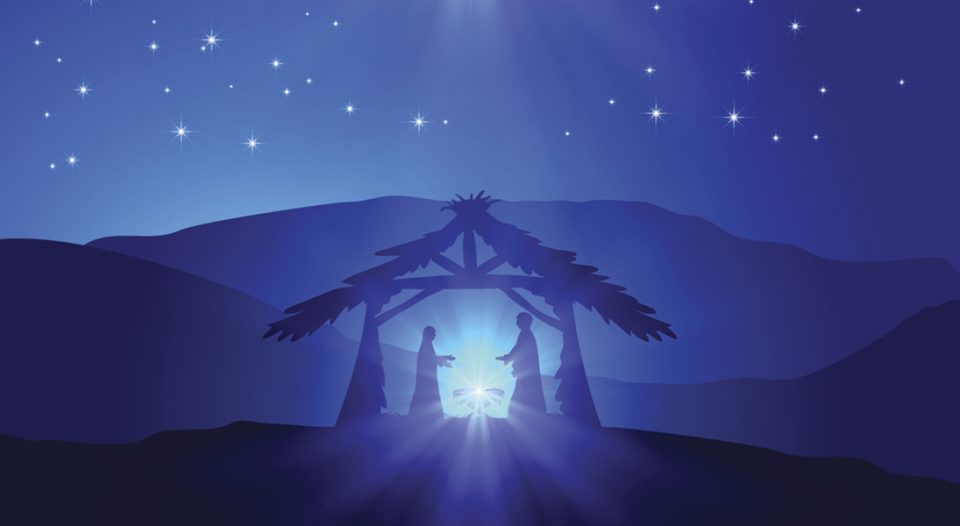At Christmas, we celebrate the birth of Jesus—the light of God embodied. I confess, the irony isn’t lost on me that many of us now communicate more frequently through pixilated light on computer screens than in fully embodied encounters.
As my family rearranges Christmas plans, schedules Zoom calls with out-of-state relatives and plans for online worship services, I would be lying if I said I didn’t feel a sense of loss. Even if we were to worship in person, public health recommendations would prohibit us from singing, hugging friends or experiencing the closeness of a fully packed worship space.
In whatever ways your family or worship community celebrates the incarnation this year, one thing is certain: this celebration will be unlike any other. But then, that is precisely in keeping with the Christmas tradition. The beautiful prologue in the Gospel of John proclaims that not since the creation of the world had God’s people come so close to the divine light as they did at the birth of Jesus. The Christmas story punctuates an experience of space but doesn’t annihilate it.
We can be confident that however we celebrate, God’s light will shine for us this Christmas—just as it shone in the distant fields and the unintended birth site in Bethlehem.
John calls this space darkness and proclaims that precisely in this darkness is where the light of God has shone. Luke situates the birth of Jesus in the dark of a winter night in Bethlehem—in a stable, at a distance from the town’s busy streets and inns. He tells us that at a distance even further removed, in the fields away from town, the heavenly host lit up the night.
The celebration that first Christmas Eve was unlike any other, but on the nights preceding it, John assures us, the light was still present. No space was too great to keep God from God’s people. No darkness could overcome it.
Distance doesn’t mean absence; darkness doesn’t mean defeat. John writes, “The light shines in the darkness, and the darkness did not overcome it” (1:5). We can be confident that however we celebrate, God’s light will shine for us this Christmas—just as it shone in the distant fields and the unintended birth site in Bethlehem.
Even as we lament what is lost, the unique circumstances of this Christmas create space to experience the incarnation anew. In the spirit of Christmas, I have begun to experiment with new ways to celebrate the eternal light of the season.
Here are a few possibilities I have found meaningful:
- Las Posadas celebrations invite households to journey with Mary and Joseph and to embody the Christmas story in their personal spaces. This can be conducted online in real time with an application such as Zoom, as a prerecorded drama or as an outdoor parade that allows the “travelers” to visit people at a distance, on driveways or porches, as they bring the story to each home.
- An ABC Christmas pageant brings children together to tell the Christmas story in individual snippets. This is ideal for socially distanced Christmas programs whether they be in-person, prerecorded or conducted on Zoom.
- Create luminaries or lanterns to bring home the magic of Christmas Eve candlelight. They can provide ambience for a digital worship service or light up your yard or driveway to share the light with neighbors.
As you adapt your own celebrations, I invite you to join my family this season in celebrating the light that shines in the space between us rather than dwelling too long on the darkness of that space.





